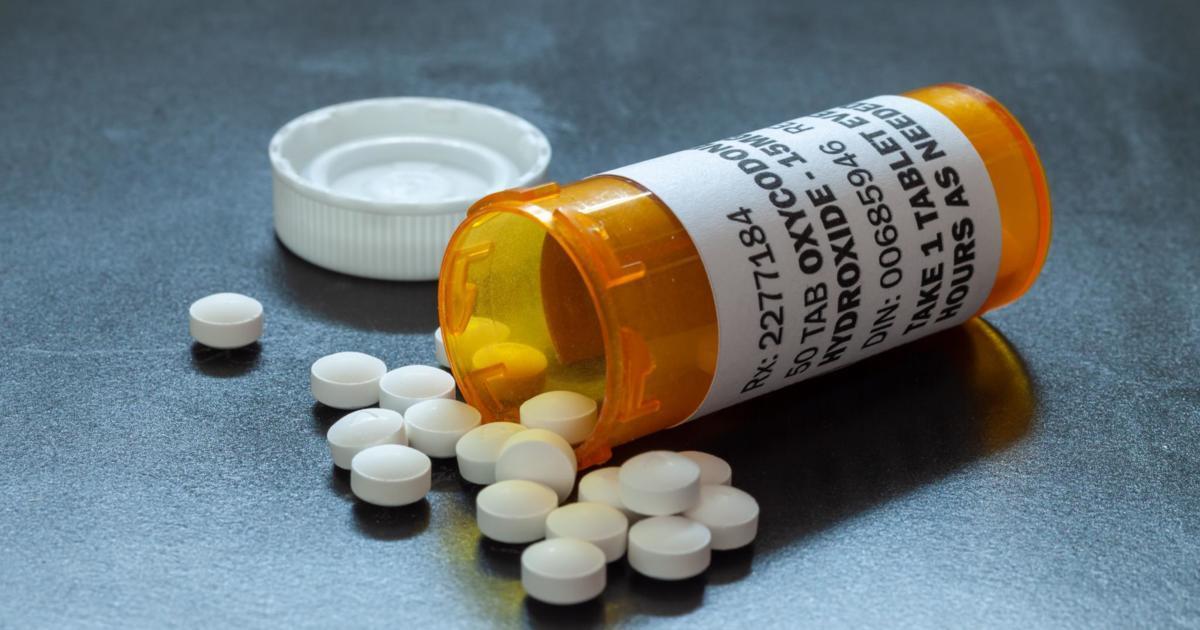
Dr. Natasha E. Kelly, MD, MBA, MSA
Surgeon
445 Beaver Street AptA8 Ansonia CT, 06401About
Dr. Natasha Kelly is a general surgeon/general practitioner practicing in Ansonia, CT. Dr. Kelly specializes in providing Women's Health via Telemedicine/Telehealth focusing on Weight Loss care, Chronic Pain Management care, Mental Health care, MAT/Opioid/alcohol use disorder care, Urgent Care and Telegenetics in socially disdvantged areas and populations.
Education and Training
SUNY Downstate Health Sciences University Medical Degree 0
Provider Details

Dr. Natasha E. Kelly, MD, MBA, MSA's Expert Contributions
Doxycycline: An Effective Therapeutic for Acute COVID
It has been demonstrated in the literature, since May 2021 that Doxycycline is an effective and efficacious therapeutic against the SARS-COV2 virus. The literature demonstrates that physiologically Doxycycline works as an antiviral, and anti-inflammatory in a similar fashion to Ivermectin....
The Optimal Opioid Use Disorder Rx: Low Barrier MOUD
Purdue Pharma finally admitted to their guilt for misleading and misinforming physicians and the medical community about the addiction profile of Oxycodone/Oxycontin. The resultant carnage to society, the opioid epidemic, is still rabidly ravaging the country. The COVID pandemic exponentially...
Ivermectin: An Effective Therapeutic for Long COVID
Ivermectin as an antiviral is an effective therapeutic for long COVID. The key is to optimize and augment innate immunity via enhancement of the gut microbiome, as well as, improving the required micronutrient and trace minerals, that are necessary co-factors for the body's internal wound...
The Optimal Opioid Use Disorder Rx: Low Barrier MOUD
Purdue Pharma finally admitted to their guilt for misleading and misinforming physicians and the medical community about the addiction profile of Oxycodone/Oxycontin. The resultant carnage to society, the opioid epidemic, is still rabidly ravaging the country. The COVID pandemic exponentially...
The Cure for Obesity: The Gut Microbiome
Obesity is now a global disease. In the United States about 40-50% of the population is overweight or obese. This is a twenty-first century problem secondary to the fast food industry. Food has become a drug with exponential addiction potential, and should be considered a component of substance use...
Endometrioisis: A Systemic Disease
Endometriosis is a progressive chronic autoimmune inflammatory disease that affect 1 in 10 women of reproductive age, which can sometimes start at 9-11 years old. It is an extremely debilitating disease which is often misdiagnosed and under diagnosed. There are two types invisible/microscopic...
Urgent Care Telehealth Protocol for Telehealth-Telemedicine Providers
Urgent Care Telehealth Protocol for Beginners: High Quality Documentation: No Representation Without DocumentationDo’s: Verify, Don’t TRUST...
Endometriosis: The Great Chameleon
Endometriosis is an inflammatory autoimmune disease that affects 1 in 10 women globally and affects women mainly during their reproductive years. Secondary to the ability of these inflamed tissues or inflammatory mediators possibly spreading to anywhere in the body, endometriosis is woefully...
Treatment for Low Sexual Desire in Women
Hyposexual desire disorder (HSDD) or low sexual desire in women affects about 1 in 10 women globally. The causes of low sexual desire in women are varied and many. The main causes I have seen in my practice are due to oral contraceptives, intrauterine devices, implantable hormonal devices,...
What is the best diet after prostate surgery?
Hello, If the person has diabetes, heart disease or kidney disease, the diet is the DASH diet, otherwise it’s the Mediterranean diet. Choose appropriate diet based on comorbidities, then include juicing with carrot/beet/ginger at 1 glass for at least 5 days a week. Also, one must seal the leaky gut that occurs with Surgery with Mood Probiotics and Berberine. Everything must be organic, preservative free, and non-GMO. Dr. Kelly READ MORE
How is hernia surgery done?
Hello, Most hernia repairs are done laparoscopically via the little port site incisions using a camera. Most hernias are incisional abdominal from previous surgical procedures or ventral, again on the abdomen. If this is an inguinal hernia, the repairs are still done laparoscopically. You can watch these videos on YouTube for more insight and clarity. Dr Kelly READ MORE
How long before you can walk after hernia surgery?
Hello: Immediately. Take tiny steps. You can also do locoregional treatment with Family Dollar chest rub or Vick’s, gently massage area around incision for up to 2 minutes. Repeat every 2-3 hours. You have to walk. You are at a high risk of DVT and blood clots. Plus, lung collapse/atelectasis. Dr Kelly READ MORE
How long will I bleed after bladder surgery?
Hello: The issues here are: number 1, your innate bleeding system, and number 2, the surgeon must perform enough hemostatis (bleeding control) during the procedure so that you don't bleed after the procedure/surgery is completed. Your innate bleeding system has to be evaluated prior to surgery. All blood thinners must be discontinued about 5 days prior to surgery, such as, Motrin, ASA, or Coumadin. Herbs that can cause blood thinning have to be discontinued as well. Therefore, be very honest and detailed with your physician. Regardless, surgery is a fine balance of your innate issues/comorbidities, anesthesia and the actual surgical procedure, so that everything goes well. Sincerely, Dr Kelly. READ MORE
Why is a colonoscopy so scary to most people?
Hello: Any invasive procedure is scary. Number one, it is invasive, the scope can perforate(poke a hole in your colon). Number two, during the procedure, the spleen which is outside the colon can be torn or ruptured and cause a lot of bleeding. Number three, anesthetic drugs can cause heart attack or prolonged unconsciousness, leading to coma. Number four, if a polyp is removed, that procedure can result in a hole in the colon as well. Bottom line, every invasive procedure has complications. Also, one has to deal with the patient’s comorbidities, such as, hypertension, obesity and diabetes, that add to the increased risk for complications. Dr Kelly READ MORE
What happens after your appendix is removed?
Hello: It depends on how bad your appendicitis was, and the type of surgery, that is, laparoscopic or open. The appendix is a part of gut immune response system, especially before 18 years old. Therefore, if it is removed prior to 18 y.o., your immune response to disease can be affected. After 18 years old it’s not so bad. You can have adhesions and intestinal issues after surgery, especially if this is the first sign for inflammatory bowel disease of some form. Dr Kelly READ MORE
When can you write again after hand surgery?
Hi, 8-12 weeks. It depends on your body's healing capabilities and extent of hand surgery. Dr. Kelly READ MORE
Areas of expertise and specialization
Awards
- NSF SBIR Pitch 2022 NSF SBIR
Internships
- University of Pittsburgh
Fellowships
- Memorial Sloan Kettering
What do you attribute your success to?
- Love of the medical field, helping patients, education, research, making a difference
Areas of research
Gut Barrier Failure
Obesity
Pediatric Surgical Oncology
Genetic Polymorphisms
Dr. Natasha E. Kelly, MD, MBA, MSA's Practice location
Effective Healthcare Medical PBC
445 Beaver Street AptA8 -Ansonia, CT 06401Get Direction
Dr. Natasha E. Kelly, MD, MBA, MSA's reviews
Write Review
Patient Experience with Dr. Kelly
- Sherlan
Detailed instructions and diagnosis. Great at follow-ups. Easy to speak to and a great listener. Dr. Kelly keeps excellent records and has a sense of humor. Known Dr. Kelly for over 8 years and she has an excellent memory of all my issues and follow-through promptly as needed.
- Angeline
Dr. Kelly is personable, relatable, and caring. She listens to my issue and follow-up to be sure I was doing well/getting better. In addition, she is an expert in her field. Last, she is well-rounded with respect to different types of treatments. In other words, she is not one-dimensional in her recommendations for a cure.
Media Releases
Get to know General Surgeon-General Practitioner Dr. Natasha E. Kelly, who serves patients in underserved areas/population in 5 states including the Naugatuck Valley via Telehealth.
As a general surgeon-general practitioner who is domiciled in Connecticut, Dr. Kelly performs a range of surgeries and operations, usually focusing on areas and organs of the abdomen and their related organs. She runs her own virtual community health center at Effective Healthcare Medical P.C., with her physical office in Ansonia, Connecticut, and is licensed in 5 states.
Effective Healthcare Medical P.C. has been providing community healthcare solely via Telehealth for over 4 years. The virtual health clinic provides clinical services focusing on urgent care, MAT/Opioid/alcohol use disorder management, pain management, migraine management, orthotic devices/occupational health/rehab medicine, cancer screening, pharmacogenetics, allergy/immunology testing, obesity medicine, behavioral health, women’s health, infertility, polypharmacy prevention/management, and wound care. Additionally, with the advent of point of care devices which can monitor heart rhythms, blood pressure and glucose levels at home,. Telehealth is vast approaching the methodology for preventative and continuous care for the improvement in treatment for chronic diseases, such as diabetes and hypertension.
After earning her medical degree from SUNY Downstate Health Sciences University, Dr. Kelly went on to perform her residencies in general surgery at SUNY Downstate Medical Center and North Shore-Long Island Jewish Medical Center.
With over two decades of experience in her field, Dr. Kelly attributes her success to her love of the medical field, her desire to help patients, her efforts to stay on top of education and research, as well as her strive to affect change in the field of healthcare..
Specializing in general surgery and emergency medicine, she is a Fellow of the American College of Surgeons.
General surgery is a surgical specialty that focuses on abdominal contents including the esophagus, stomach, small bowel, colon, liver, pancreas, gallbladder, appendix and bile ducts, and often the thyroid gland. A general surgeon performs a wide range of abdominal surgeries for many forms of intestinal and abdominal wall neoplasms, gallbladder disease, gastric and pancreatic disease. They follow the patient through critical care and surgical recovery all the way to outpatient care.
Recommended Articles
- Why Do the Benefits Outweigh the Risks of Circumcision?
Male circumcision has been a highly debated topic with arguments both for and against it. Various religious and traditional practices across the globe favor circumcision. However, there are also large sections of the population in other parts of the world where circumcision is not recommended by...
- What is the Central Venous Catheter?
The central venous catheter is a type of a catheter that is normally placed in a vein of large size. It is also called the central venous line or central line. Central venous catheters can be fitted in veins found in the chest, groin, arms, and neck. This type of catheter is often used in the...
- Understanding Appendicitis in Children
Appendicitis is a serious condition that can affect both men and women at any point in life. However, it has been found that children and toddlers account for the majority of deaths caused by it. There could be several reasons behind this: The foremost is that adults can easily recognize and express...
- Laparoscopy and Infertility
LaparoscopyA laparoscopy is a surgical procedure, which allows doctors to examine your abdominal organs. In females, their fallopian tubes, uterus, and ovaries are found in the pelvic region, which is at the bottom of the abdomen. The procedure uses a laparoscope to visualize the abdominal organs....
- How to Prepare for Gallbladder Surgery
Laparoscopic gallbladder removal is one of the most commonly undertaken surgeries. The Gallbladder...
- What Are the Most Obvious Symptoms of Appendicitis?
Appendicitis is a condition that causes the inflammation of the appendix. The appendix is a tube around 3½ inch long and extends from the large intestine. It is said that the appendix has a role in gut immunity, but nothing as yet is definite with regard to its function. An individual can live...
Nearby Providers
- Juan Diego Holguin36 Amber Place Waterbury Connecticut 6705
- Stanley J. Dudrick40 Beecher Street Naugatuck Connecticut 06770
- Dr. Roselle Eisma Crombie M.D./M.P.H111 BEACH RD FAIRFIELD CT 06824
- Dr. Joseph Gordon MD107 Newtown Rd Danbury CT 06810
- Dr. Jitendra Bhagwandas Bharucha M.D.2660 Main St Bridgeport CT 06606
- Dr. Julio Teixeira Other111 OSBORNE ST DANBURY CT 06810




















